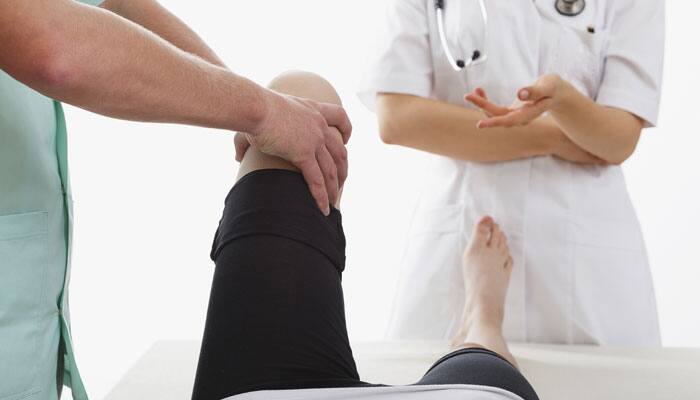London: British scientists are investigating a new therapy for the treatment of tendon injuries such as tennis elbow and achilles tendinitis, using injection of small molecules that help regulate gene expression.
Tendon injuries (tendinopathies) are common, accounting for 30-50 per cent of all sports injuries, and are usually caused by repetitive strain or major trauma.
While many people recover after a period of rest, a significant number of people do not because the structure of the tendon itself has permanently weakened.
Healthy tendons, connecting muscles to bones, are primarily composed of type-1 collagen, a very strong material.
When injured the body responds by producing the inferior type-3 collagen to quickly repair the damage.
This type of collagen is not as strong as type-1 and is more prone to damage. Normally, over time, type 3 is replaced by the stronger type-1.
Scientists at the University of Glasgow are trialling a new therapy TenoMiR for treating tendinopathy after being awarded a High Growth Spinout grant from Scottish Enterprise.
According to a release by the University, the trial will use injections of microRNA small molecules that help regulate gene expression into the tendon to 'dial-down' the production of type 3 collagen and switch to type-1.
The Glasgow team have already been successful in making the switch in cultured cells in the lab and in mice.
"Tendinopathy is essentially the result of an imbalance between collagen type-1 and type-3 and we have discovered the molecular cause," said Neal Millar, an academic consultant orthopaedic surgeon and clinical senior research fellow at the University of Glasgow.
"Our studies have revealed the previously unrecognised ability of a single microRNA to cross-regulate important functions in the early biological processes that lead to tissue repair," said Co-investigator and senior molecular biologist Derek Gilchrist.
The scientists found that a single microRNA - miR-29a through its interaction with a protein, interleukin 33, plays a key role in regulating the production of collagens in tendon disease.
Loss of miR29a from human tendons results in an increase in collagen type-3 production; a key feature of tendon disease.
















